For the validation of scientific research InResLab uses the support of a Technical Committee. The Scientific Committee is composed of university professors, researchers and technical experts, highly skilled consultants on subjects concerning the activities of the research.
The Scientific Committee:
- contributes to the definition of the annual plan of activities of the Consortium;
- examines the proposals brought to its attention by the Board of Directors of the Consortium, contributing to set, for key positions, addresses and guidelines for research;
- collaborated in the evaluation and control of the work steps;
- evaluate the results of the research activities of the Consortium also in order of their scientific publication.
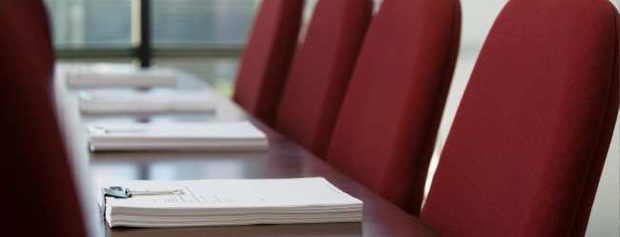
Members of the Main Technical Committee:
Prof. Eng. Michele DASSISTI
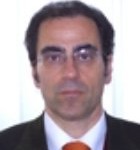 He is chartered engineer in Italy and has a permanent position as associate professor of Manufacturing Systems and Technologies at Politecnico di Bari. He has a significant academic and industrial experience in Italian academia and industry since 1988. He has unique expertise in continuous technological process improvement and innovation, as well as interoperability and integration of complex systems, having basically performed applied industrial research on this topics for several conventional and non-conventional manufacturing processes and technologies with direct support from research councils and various Italian and international industrial partners. He has extensive expertise in designing and manufacturing quality management systems, innovative applications of advanced statistical methods, artificial intelligence techniques (neural networks, expert systems, genetic algorithms, fuzzy logic, predicate logics, ontology), decision making techniques, discrete event simulation, finite element analysis. Over the last years, he has successfully managed to achieve new designs for industrial technologies that have enhanced the performance of various industrial processes in more than 20 Italian and international companies. Throughout his academic career, he has been member as well as responsible for national research project funded by the Italian Ministry of Research (PRIN; PON; PAC) and international European projects (UE STRIDE; ESPRIT-FP5; LEONARDO-FP5; INTEROP-FP6; ADAPT; INTERREG-FP6; GALILEO FP7; PICS CNRS), and a wide number of private industrial funded projects. He is author or co-author of author of over 133 scientific papers in the area of process improvement for manufacturing processes and energy production systems (https://iris.poliba.it/). He is also in several scientific committee of International Conferences. He founded of the Italian Pole of the INTEROP-VLab.It (http://www.interop-vlab.eu/) and is actually regular member of the IFAC Technical Committee 5.3 ‘‘Enterprise Integration and Networking’’ and ENBIS association . He is inventor of two filed patents in areas of WEE recycling and innovative sustainable buildings.
He is chartered engineer in Italy and has a permanent position as associate professor of Manufacturing Systems and Technologies at Politecnico di Bari. He has a significant academic and industrial experience in Italian academia and industry since 1988. He has unique expertise in continuous technological process improvement and innovation, as well as interoperability and integration of complex systems, having basically performed applied industrial research on this topics for several conventional and non-conventional manufacturing processes and technologies with direct support from research councils and various Italian and international industrial partners. He has extensive expertise in designing and manufacturing quality management systems, innovative applications of advanced statistical methods, artificial intelligence techniques (neural networks, expert systems, genetic algorithms, fuzzy logic, predicate logics, ontology), decision making techniques, discrete event simulation, finite element analysis. Over the last years, he has successfully managed to achieve new designs for industrial technologies that have enhanced the performance of various industrial processes in more than 20 Italian and international companies. Throughout his academic career, he has been member as well as responsible for national research project funded by the Italian Ministry of Research (PRIN; PON; PAC) and international European projects (UE STRIDE; ESPRIT-FP5; LEONARDO-FP5; INTEROP-FP6; ADAPT; INTERREG-FP6; GALILEO FP7; PICS CNRS), and a wide number of private industrial funded projects. He is author or co-author of author of over 133 scientific papers in the area of process improvement for manufacturing processes and energy production systems (https://iris.poliba.it/). He is also in several scientific committee of International Conferences. He founded of the Italian Pole of the INTEROP-VLab.It (http://www.interop-vlab.eu/) and is actually regular member of the IFAC Technical Committee 5.3 ‘‘Enterprise Integration and Networking’’ and ENBIS association . He is inventor of two filed patents in areas of WEE recycling and innovative sustainable buildings.
Prof. Giuseppe PIRLO
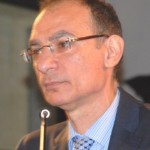 He received the Computer Science degree cum laude in 1986 at the Department of Computer Science of the University of Bari, Italy. He received a fellowship from IBM in 1988. Since 1991 he has been Assistant Professor at the Department of Computer Science of the University of Bari, where he is currently Associate Professor (SSD: ING-INF/05). His interests cover the areas of biometrics, pattern recognition, intelligent systems, computer arithmetic, communication and e-Learning. He has developed several scientific projects and published more than two-hundred-fifty papers in the field of automatic signature verification, handwriting recognition, document analysis and processing, parallel architectures for computing, multimedia technologies for collaborative work and distance learning. Giuseppe Pirlo is associate editor for IEEE T-HMS and reviewer for many international journals including IEEE T-PAMI, IEEE T-SMC, IEEE T-EC, IEEE T-IP, IEEE T-IFS, Pattern Recognition, IJDAR, IPL, etc. . He was the general chair of international conferences and workshops and has served as reviewer of ICPR, ICDAR, ICFHR, IWFHR, ICIAP, VECIMS, CISMA, etc. . He was editor of the Special Issue “Handwriting Recognition and Other PR Applications” of the Pattern Recognition Journal and of the Special Issue “Handwriting Biometrics” of the IET Biometrics Journal. Currently, he is guest editor of the IEEE T-HMS Special Issue on “Drawing and Handwriting Processing for User-Centered Systems”. He is editor of the book: “Advances in Digital Handwritten Signature Processing – A Human Artefact for e-Society”, World Scientific, 2014; “Challenges and Opportunities of the Digital Agenda”, SIEL, 2014; “Puglia Digitale – Implementazione dell’Agenda Digitale e delle Smart City in Puglia”, UNIBA, 2014; “Puglia e Innovazione – Politiche per l’Innovazione, terza Missione e Sviluppo del Territorio”, UNIBA, 2015. Giuseppe Pirlo has planned and managed several successful projects funded with national and European funds. Giuseppe Pirlo is Senior Member IEEE and member of the Governing Board of CINI and of the Governing Board of SIe-L. He is also chair of the Apulian Section of AICA and member of GIRPR, IAPR, and GII. He is member of the Governing Board of the e-learning Committee of the University of Bari and he is the managing advisor of the University of Bari for the Digital Agenda and Smart Cities.
He received the Computer Science degree cum laude in 1986 at the Department of Computer Science of the University of Bari, Italy. He received a fellowship from IBM in 1988. Since 1991 he has been Assistant Professor at the Department of Computer Science of the University of Bari, where he is currently Associate Professor (SSD: ING-INF/05). His interests cover the areas of biometrics, pattern recognition, intelligent systems, computer arithmetic, communication and e-Learning. He has developed several scientific projects and published more than two-hundred-fifty papers in the field of automatic signature verification, handwriting recognition, document analysis and processing, parallel architectures for computing, multimedia technologies for collaborative work and distance learning. Giuseppe Pirlo is associate editor for IEEE T-HMS and reviewer for many international journals including IEEE T-PAMI, IEEE T-SMC, IEEE T-EC, IEEE T-IP, IEEE T-IFS, Pattern Recognition, IJDAR, IPL, etc. . He was the general chair of international conferences and workshops and has served as reviewer of ICPR, ICDAR, ICFHR, IWFHR, ICIAP, VECIMS, CISMA, etc. . He was editor of the Special Issue “Handwriting Recognition and Other PR Applications” of the Pattern Recognition Journal and of the Special Issue “Handwriting Biometrics” of the IET Biometrics Journal. Currently, he is guest editor of the IEEE T-HMS Special Issue on “Drawing and Handwriting Processing for User-Centered Systems”. He is editor of the book: “Advances in Digital Handwritten Signature Processing – A Human Artefact for e-Society”, World Scientific, 2014; “Challenges and Opportunities of the Digital Agenda”, SIEL, 2014; “Puglia Digitale – Implementazione dell’Agenda Digitale e delle Smart City in Puglia”, UNIBA, 2014; “Puglia e Innovazione – Politiche per l’Innovazione, terza Missione e Sviluppo del Territorio”, UNIBA, 2015. Giuseppe Pirlo has planned and managed several successful projects funded with national and European funds. Giuseppe Pirlo is Senior Member IEEE and member of the Governing Board of CINI and of the Governing Board of SIe-L. He is also chair of the Apulian Section of AICA and member of GIRPR, IAPR, and GII. He is member of the Governing Board of the e-learning Committee of the University of Bari and he is the managing advisor of the University of Bari for the Digital Agenda and Smart Cities.
Prof. Eng. Giuseppe STARACE
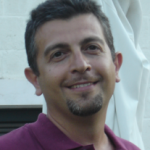 Born in Bari (Italy) in 1971, mechanical engineer (1995- Polytechnic of Bari; final thesis: “Study of the flow fields and of the granulometry of the spray produced by injectors for Diesel engines with PDPA techniques”) and Ph.d. in Energy and Environmental Systems (2000 – University of Sanlento, Lecce; final thesis: “Methodologies of Characterization of Diesel Sprays”), he is now Researcher and Assistant Professor in Applied Thermodynamics and Refrigeration Systems at the Department of Engineering for Innovation of the University of Salento. His main research issues are at present the energy production and management both from traditional and renewable energy sources, the heat transfer, the heat exchangers, as well as the modeling and optimization of vapor compression and absorption refrigeration systems. He is author of more than 65 research papers and of two technical books. He has been taking part to more than 20 R&D projects for 15 years. At the beginning of his engineering career he was employed mainly as a R&D engineer both in small and big enterprises. He experienced periods in the US (in Madison at the University of Wisconsin) and in Germany (in Stuttgart at BOSCH Gmbh) devoted both to research and design and developent activities. He is in charge of many commissions as a professional engineer, technical consultant and research manager by SMEs and Italian authorities. Complete information about his career can be found at the website: www.ingegneriastarace.it.
Born in Bari (Italy) in 1971, mechanical engineer (1995- Polytechnic of Bari; final thesis: “Study of the flow fields and of the granulometry of the spray produced by injectors for Diesel engines with PDPA techniques”) and Ph.d. in Energy and Environmental Systems (2000 – University of Sanlento, Lecce; final thesis: “Methodologies of Characterization of Diesel Sprays”), he is now Researcher and Assistant Professor in Applied Thermodynamics and Refrigeration Systems at the Department of Engineering for Innovation of the University of Salento. His main research issues are at present the energy production and management both from traditional and renewable energy sources, the heat transfer, the heat exchangers, as well as the modeling and optimization of vapor compression and absorption refrigeration systems. He is author of more than 65 research papers and of two technical books. He has been taking part to more than 20 R&D projects for 15 years. At the beginning of his engineering career he was employed mainly as a R&D engineer both in small and big enterprises. He experienced periods in the US (in Madison at the University of Wisconsin) and in Germany (in Stuttgart at BOSCH Gmbh) devoted both to research and design and developent activities. He is in charge of many commissions as a professional engineer, technical consultant and research manager by SMEs and Italian authorities. Complete information about his career can be found at the website: www.ingegneriastarace.it.
Prof. Eng. Luciano MESCIA
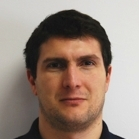 He has a permanent position as Associate Professor of Electromagnetic Fields at Politecnico of Bari. His research activities focus on electromagnetic technologies and devices for industrial, biological and biomedical applications. He is working in the field of evolutionary computation and in particular on the theoretical aspects for the development of artificial neural networks, genetic algorithm, and swarm intelligence to solve electromagnetic optimization problems. Thanks to international collaborations, he is developing novel research activities about the characterization and optimum design of radiation-hardened and high power rare earth doped fiber amplifiers by means of particle swarm optimization. He is performing studies on electromagnetic energy harvesting systems and, in particular, on the design of innovative rectennas for wearable electronics, wireless sensors, passively powered devices and for collecting the longwave radiation emitted from the Earth. Moreover, he is involved in several research activities pertaining the analysis and synthesis of novel dielectric lens antennas for biomedical and wireless applications, the development of microwave and pulsed electric field applicators for food processing. Other researches fall within the use of the of non-ionizing pulsed electromagnetic fields in health-care. To this aim, he is developing novel FDTD schemes based on fractional calculus to model the propagation of pulsed electromagnetic signals in dispersive biological tissues. He has cooperated with many national and international research institutions and he joined several research projects (PRIN, PON, GALILEO FP6) with academic and industrial partners. His research work has resulted in, 60 peer-reviewed journals papers, 2 books, 2 book chapters, 80 paper in leading international conferences. He is scientific committee member of Scienze e Ricerche magazine, editorial board member of Hindawi Journal of Photonics and Hindawi Mathematical Problems in Engineering Journals, and he was a panel member of the 2014 and 2015 edition of the Italian Price in Science Communication. In January 2015, he achieved the Honorable Mention by IEEE MTT-S Central-Southern Italy Award 2014. Prof. Mescia is a member of Italian Society of Optics and Photonics (SIOF-EOS) and Italian Society of Electromagnetism (SIEm).
He has a permanent position as Associate Professor of Electromagnetic Fields at Politecnico of Bari. His research activities focus on electromagnetic technologies and devices for industrial, biological and biomedical applications. He is working in the field of evolutionary computation and in particular on the theoretical aspects for the development of artificial neural networks, genetic algorithm, and swarm intelligence to solve electromagnetic optimization problems. Thanks to international collaborations, he is developing novel research activities about the characterization and optimum design of radiation-hardened and high power rare earth doped fiber amplifiers by means of particle swarm optimization. He is performing studies on electromagnetic energy harvesting systems and, in particular, on the design of innovative rectennas for wearable electronics, wireless sensors, passively powered devices and for collecting the longwave radiation emitted from the Earth. Moreover, he is involved in several research activities pertaining the analysis and synthesis of novel dielectric lens antennas for biomedical and wireless applications, the development of microwave and pulsed electric field applicators for food processing. Other researches fall within the use of the of non-ionizing pulsed electromagnetic fields in health-care. To this aim, he is developing novel FDTD schemes based on fractional calculus to model the propagation of pulsed electromagnetic signals in dispersive biological tissues. He has cooperated with many national and international research institutions and he joined several research projects (PRIN, PON, GALILEO FP6) with academic and industrial partners. His research work has resulted in, 60 peer-reviewed journals papers, 2 books, 2 book chapters, 80 paper in leading international conferences. He is scientific committee member of Scienze e Ricerche magazine, editorial board member of Hindawi Journal of Photonics and Hindawi Mathematical Problems in Engineering Journals, and he was a panel member of the 2014 and 2015 edition of the Italian Price in Science Communication. In January 2015, he achieved the Honorable Mention by IEEE MTT-S Central-Southern Italy Award 2014. Prof. Mescia is a member of Italian Society of Optics and Photonics (SIOF-EOS) and Italian Society of Electromagnetism (SIEm).
